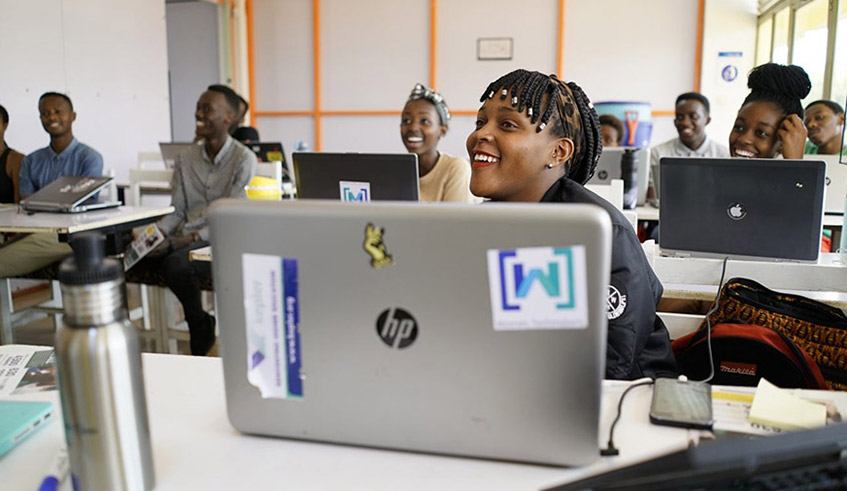

Through partnership with Southern New Hampshire University (SNHU)-United States, Kepler program has enrolled over 1000 students, across campuses in Kigali and the Kiziba refugee camp ((Karongi District).
More than 25% of their students in SNHU degree programs are refugee learners and 50% are women.
Ashley Haywood, the humanitarian initiatives director at Kepler says, inclusion of refugee communities can help ensure more equitable access to resources and opportunities for everyone.
The move towards a more integrated approach allows humanitarian and development programming to create more cohesive and streamlined approaches, rather than parallel systems, she says.
With their program, the job-readiness curriculum paired with the degree means graduates have the skills to compete on the local labour market and add value to any organisation.
Refugee graduates apply their knowledge as they work for local businesses and non-profits, by starting their own businesses and employing others, or creating social programs to support youth, Haywood explains.
"Graduates are financially supporting their families and finding ways to give back to their communities. Kepler refugee students are confident, skilled professionals who are also changing perceptions of what is possible for refugees,” she adds.
Aimee Umulisa, an on-site facilitator at Jesuit Worldwide Learning in partnership with Plan International, helps young refugees to get high quality tertiary learning for them to gain knowledge and skills to support themselves in becoming advocates for peace, gender equality, enhance talents, and promote resilience.
Before joining Kepler, Umulisa thought it impossible for refugees to be successful due to many challenges they tend to face.
However, Kepler taught her how to turn challenges into success by effectively using available resources.
"This helped me to be more courageous and strong enough to achieve my goals. To add on, I learned how to give back to my community where I joined a refugee led organisation to support refugees to become self-reliant. I want the world to know that people’s ability is not determined by their status. As the Tennesse Office for Refugees said, "To be called a refugee is the opposite of an insult; it is a badge of strength, courage, and victory.”
Purpose to serve
Kepler also runs "Iteme”, a preparatory program designed to bridge the gap between secondary and tertiary education for refugees and disadvantaged Rwandans. Iteme provides upskilling in English communication, mathematics, and technology while introducing participants to tertiary opportunities and supporting them through application processes.
Nathalie Munyampenda Chief Executive Officer at Kepler, says they made a very important decision to start serving refugee students with a purpose to solve multiple problems at the same time.
She notes that they are trying to make sure their students are getting quality education that allows them to acquire 21st century quality skills to prepare them for current employment and upcoming employment jobs that don’t exist yet.
"And we are trying to do this by providing them with complete online experience and are also trying to make it accessible and affordable both for our students that come from a low income background, but also for our refugee students which make up 25 per cent of student body.”


